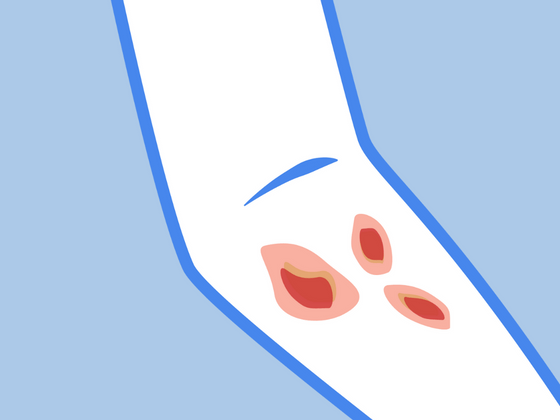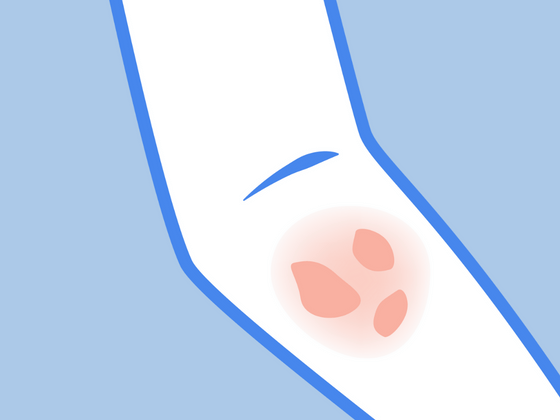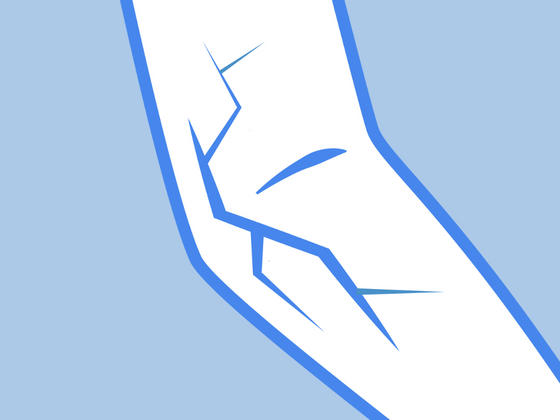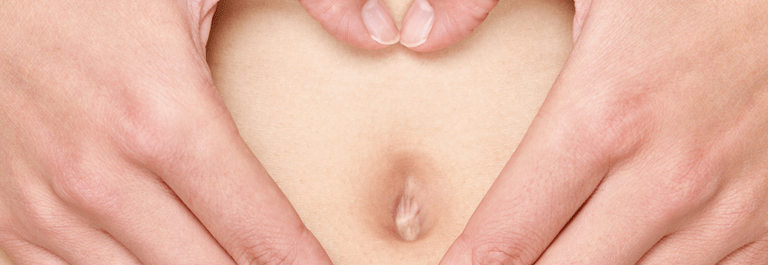Have you noticed a rash appearing on your forehead? It could be facial dermatitis. Facial dermatitis, or eczema, commonly presents as red, itchy, dry bumps anywhere on the face. In some cases, it can even be weepy. The forehead is just one of the areas it can appear. Facial eczema can be tiresome, distressing, and cause self-esteem issues, especially in younger sufferers. Luckily, there are ways you can manage your symptoms naturally and reduce the appearance of dermatitis on your forehead.
In this blog post, we discuss forehead eczema treatment in more detail, including
- What causes forehead eczema?
- Tips and tricks to prevent flare-ups
- Treatment for dermatitis on the forehead
Read on to learn more about forehead eczema and how to use safe and natural remedies to manage symptoms.
What Causes Forehead Eczema?
Eczema, also known as atopic dermatitis, is a skin condition characterized by red, dry, and itchy patches of skin. It usually develops during childhood but can also appear in adults. The exact cause is unknown, but it is said to be caused by an overreaction of your immune system to minor irritants and allergens. A few other things that can contribute to your eczema are:
- Your genetics and family history
- Irritants in your environment, such as air pollutants and pet fur
- Certain foods
- Extreme weather conditions
- Soaps and other skincare products
- Stress
These red, dry, and itchy patches of skin can appear anywhere on the body, like the hands, feet, face and even eyelids. For example, if you’re experiencing dermatitis on your forehead, you must first identify what could be triggering it.
How Can I Identify My Triggers?
Eczema can be mysterious, meaning sometimes there isn’t an easy answer to the cause of your flare-up. However, there are often small things in your daily life that may make it worse.
The best way to identify what could be exacerbating your forehead dermatitis is by recording your activity, emotions, sleep, and foods eaten before a flare-up. You can also pay attention to what your skin is coming in contact with. For example, have you changed up your skincare routine recently? Are you wearing any head coverings that come in contact with your forehead? All of these things and more can lead to flare-ups.
The Best Natural Forehead Eczema Treatment
There are many long-term and holistic approaches to treating eczema. Incorporating some of these things into your life can help minimize the uncomfortable symptoms.
Use a Natural Cleanser
Many eczema soap options contain harsh chemicals or ingredients that can lead to more irritation. So instead, we suggest using a natural soap like this Tallow Bar Soap with Zinc or Coconut and Sunflower Oil Soap Bar. They’re gentle, hypoallergenic, and won’t strip your skin from its natural protective oils.
Keep Your Forehead Moisturized
Because eczema dries out the skin, it is essential to pick the right moisturizer that won’t cause irritation. We highly recommend the Organic Manuka Skin Soothing Cream. Made with just six natural ingredients, this eczema cream will lock in moisture while soothing the skin. It also contains powerful manuka honey, which is highly anti-inflammatory, moisturizing, and healing.
Prevent Scratching
While eczema can be extremely itchy, it is essential to avoid scratching. Scratching leads to more irritation and can even lead to severe infection. Using natural skin care products and avoiding harsh materials can help prevent the itchiness that leads to scratching.
However, it can be tough to prevent little ones with eczema from scratching. Using gentle eczema cream for babies can help manage their sensitive skin. To help with this, we suggest getting mittens specifically designed for sensitive skin. We recommend these, which come in a variety of forms to suit your needs:
One-Piece Footie with Closed Mittens for Kids - 100% Organic Cotton
ScratchSleeves with Scratch Mittens
Scratch Mittens Top for Kids - 100% Organic Cotton
And if you’re an adult who suffers from scratching your face in your sleep, try wearing these at night:
Closed Eczema Mittens for Adults - 100% Organic Cotton
Get Started with Treating Your Forehead Dermatitis Today
If you’re experiencing dermatitis on your forehead, use these helpful tips to soothe your skin naturally.








